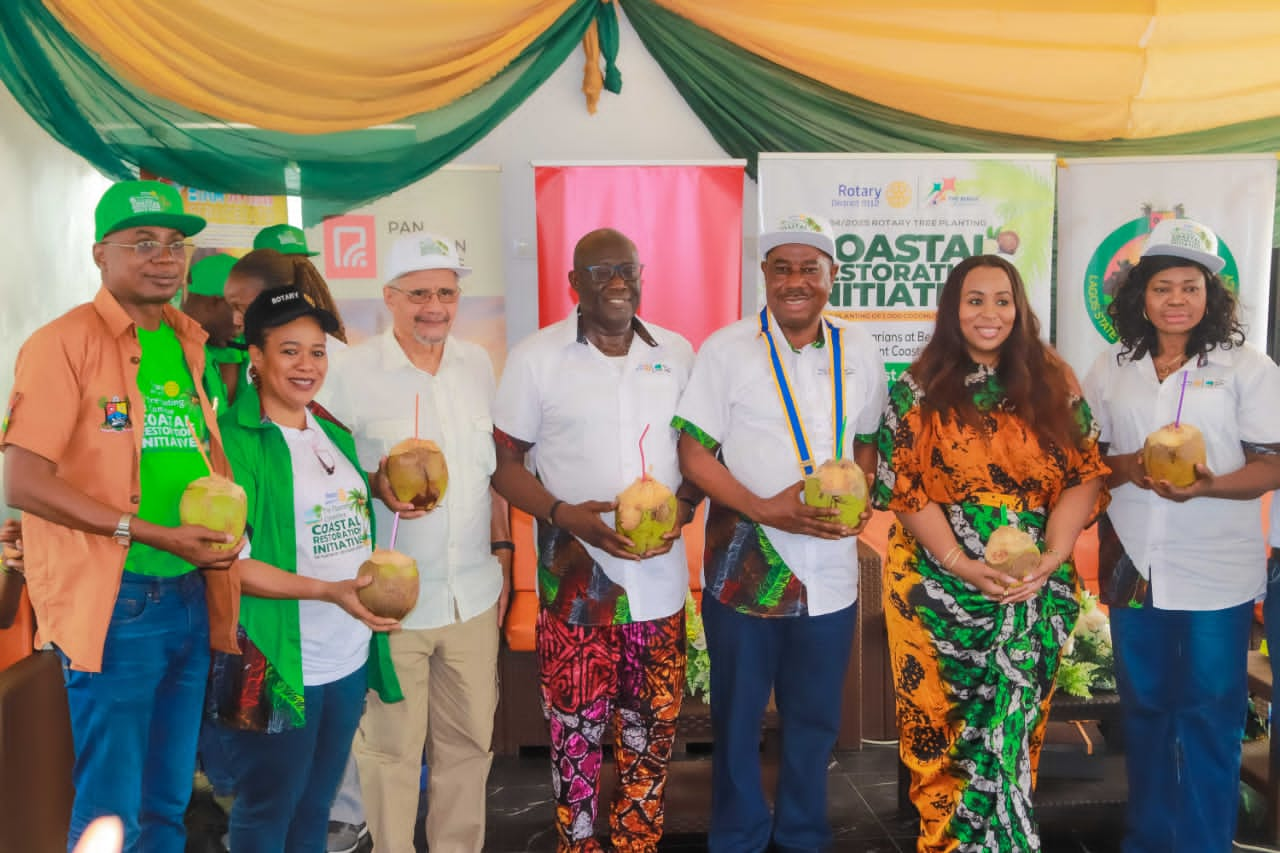By Eric Elezuo
The English dictionary defined empowerment as the state of giving power, authority or wherewithal to carry out specific assignments without recourse to another authority. It is taking charge legally or otherwise towards becoming independent, self reliant, self sustaining and capable to meet personal and communal responsibilities. These are the faces that Nigeria’s foremost food, beverage and other essential household makers, Nestlé Nigeria Limited have crowned itself with, empowering all and sundry, especially women, to become masters of their lives. And that explains why this year, 2022, the brand was recognised as a Top Employer in Nigeria, having remained in the business of teaching Nigerian women, and others how to fish.
The honour was bestowed by Top Employers Institute programme, which is saddled with the responsibilities of certifying organisations based on the participation and results of their HR Best Practices Survey. The survey covers six HR domains consisting of 20 topics including People Strategy, Work Environment, Talent Acquisition, Learning, Well-being, Diversity & Inclusion and more. It is worthy of that the more refers to the organisations social corporate responsibilities targeted at off office employees – the general public.
In the words of the brand “Our goal is to ensure women feel supported, valued and respected. We have been working to balance the gender makeup of our workforce, and are actively creating a gender-balanced leadership, by increasing the proportion of women in managerial positions, including in our most senior executive posts.
“Our Gender Balance Acceleration Plan aims to increase the proportion of women in our top 200+ senior executive posts. We carefully monitor our succession planning to ensure that we have the right pipeline for our most critical business roles and provide career support and guidance through our Senior Leader Development Roadmap (Corporate Mentoring Program, Senior Leaders Development Assessment Center and Senior Executive Program).
“Outside our own operations, in the agricultural communities that cultivate and process our raw materials, we are also working to change the economic, social and cultural outlook for women through a host of different programs that aim to teach the skills required to increase farms’ productivity, build better businesses and improve livelihoods.” This is a company that no doubt has women interest at heart.
Nestlé’s rise to assuming the top Employer status stem from its dedication to a ‘better world of work, exhibited through excellent Human Resource policies and people (oriented) practices’. These practices have transcended the four walls of the company to affect the general public, giving women the leverage to support their men, and in most cases become their own economic masters.
For starters, Nestlé’s efforts at empowering women are not limited to geo-location, but a worldwide endeavour. During the 2014 United Nations 6th Annual Women’s Empowerment Principles event, Nestlé shared its mind bulging efforts to empower women and girls worldwide, exhibiting its works in cooperation with almost 750,000 women to provide technical and business skills. Its aims are targeted at boosting education, training and opportunities, to encourage the professional development of women in the marketplace and community.
It is worthy of note that Nestle’s attention to elevating the status of women through veritable empowerment has not gone unnoticed, her modesty notwithstanding. In August 2021, the brand launched “Nestlé Empowering Rural Women in Nigeria project”, the first of its kind, with the sole aim of helping rural women retailers within the company’s value chain scale up their businesses to increase their household incomes. The programme, which has so far assumed nationwide relevance, has been launched in Nsukka and Obolo-Afor, both in Enugu State to reach an additional 50 women retailers among other places including the suburb of the Federal Capital Territory and Osogbo for the first and second phases. The launch of the programme in the above locations brought the number of beneficiaries to 150, and today continues to count, integrating more Nigerian women, who are presently capable of holding their own. Nestle doesn’t settle for less in its quest to create a self reliant Nigerian woman. It is one of the Creating Shared Value initiatives that Nestlé deploys to help build thriving communities by improving livelihoods.
Wondering why the Nestlé Empowering Rural Women in Nigeria project? The answer is not far fetched. According to the brand’s corporate office, the programme is designed to equip female distributors at the end of the pyramid to scale up to three times the size of their existing business over Three months and to sustain the new level.
Mr. Khaled Ramadan is the Commercial Manager for Nestlé Nigeria, and while lending credence to Nestlé’s contributions to empowering women within her value chain, said, “At Nestlé, we believe that by contributing to the health and wellbeing of our communities, we create shared value for all stakeholders while contributing to the growth of our business.
“Nestlé Empowering Rural Women in Nigeria project” is our way of improving the livelihoods of women in the rural areas by helping them scale their businesses to three times its current volume within three months. Our ambition is to empower 300 of these women who are retailers within our distribution channel.
“We have received very positive feedback from the first 100 beneficiaries of the program who are based in the suburbs of Abuja and Osogbo. They are reporting faster turnover and increased revenue as well as stronger visibility of their business outlets within their locations. We are therefore confident that our intervention through training, mentorship and product grants are a right mix for success. By improving the household incomes of the rural women, Nestlé is helping to improve their access to adequate nutrition, good healthcare and good quality education for their families.”
With the zeal to make the women come out tops, Nestle involves the experts, and in this case, FDConsults, which delivers the implementation process. The beneficiaries therefore, receive grants by way of Nestlé products valued at 300% of their current monthly sales, participate in training and mentorship programs which equip them with the requisite skills to scale up and sustain their businesses. The Consult also render post implementation efforts, in the form of giving them three months post training to help them succeed. Each beneficiary retailer is linked to a one-on-one mentor for guidance and consistent support. At the end of the day, the beneficiaries come out grounded and rounded, gaining the ability to master the trade and remain relevant in the business for sustainability.
“It is a delight for me to see the progress already made by the beneficiaries of “Nestlé Empowering Rural Women in Nigeria project,” Mr. Phranklin Audu, Lead Trainer & Head of Partnerships at FDConsults, said, maintaining that reports of increase in turnover and profit are very encouraging.
In no distant time, the fourth phase followed in Port Harcourt to cover the south south region with 50 additional beneficiaries, and expanding the financial and security base of Nigerian rural women, and at the same time, improve their standard of living with.
The women enjoy the training and mentorship provided by Nestlé and her implementation partners – FDConsults, and have not failed to report faster turnover and increased revenue as well as stronger visibility of their outlets within their locations. Again, the brand has a track record of helping rural women-dwellers access information and skills to improve their standard of living. The most beautiful aspect is that each woman is linked to a mentor for one-on-one guidance and consistent support spanning three months or more.
Feedbacks
“I feel so happy about this opportunity. I still cannot believe that this is true, because it is just like a dream. I want to say a big thank you to Nestlé” – Mrs. Joyce Nwaiwo
“I am very happy to have been selected to benefit from this program. I am going home with good news. With what we were taught today, I now have the knowledge to support my business to grow. With the help of the goods that Nestlé is also giving to us, I have everything I need to make my business succeed. I thank Nestlé for this important initiative, it will help all the women benefiting from the program a lot” – Mrs. Peace Eze
“I am beyond happy and I do not know how to express myself for being one of the 50 women chosen to participate in this empowerment by Nestlé in Enugu State. The free goods and training we received will be particularly helpful in taking my business to the next level. I thank Nestlé for everything they have done for me and my family” – Mrs. Clementina Irandi
“I want to thank Nestlé for doing a lot for my family. I am so happy that I was selected to participate in this program. The grant will increase my business and income which will enable me to improve my standard of living and that of my family” – Mrs. Bashiru Hairat
Even in official work capacity, Nestlé has not toiled with the wellbeing of women, elevating the gender to high profile offices, recognising their strength and capabilities in a changing world. A typical example is the Corporate Communications and Public Affairs Manager, Mrs. Victoria Uwadoka, whose efforts have catapulted the brand to enviable heights.
Nestle is quite an all rounder in empowerment. It does not stop with women, but has gigantic hand in the pie of also giving youths, the children, the disabled and many others the desired platform to become what they could and reach for the stars.
Nestlé has gained recognition by the Bloomberg Gender Equality Index for its transparency in gender reporting and advancing women’s equality in the workplace for three consecutive years.
It is believed that when the women are empowered, the community is empowered, and Nestle takes cognizance of the fact.
Nestle and women empowerment; two of a kind!


 News6 years ago
News6 years ago
 Featured6 years ago
Featured6 years ago
 Boss Picks6 years ago
Boss Picks6 years ago
 Headline6 years ago
Headline6 years ago
 Headline6 years ago
Headline6 years ago
 Headline6 years ago
Headline6 years ago
 Headline6 years ago
Headline6 years ago
 Headline6 years ago
Headline6 years ago













